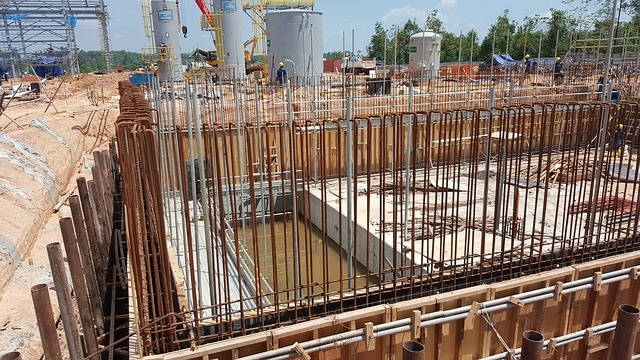Ready to find your ideal master's program?
www.mastersprogramsguide.com is an advertising-supported site. Featured or trusted partner programs and all school search, finder, or match results are for schools that compensate us. This compensation does not influence our school rankings, resource guides, or other editorially-independent information published on this site.
Construction management vs. civil engineering. Which one is right for you? And is there really any difference between civil engineering vs construction management?
In short, yes. Civil engineering is a professional field. It is responsible for the design and construction of the things that create a safe environment for civilization.
Examples? These include structures for shelter and roads and bridges for transportation. The list even includes dams and reservoirs to access and harness clean water. These are the creations of civil engineering.
To facilitate the creation of these necessary elements for society’s survival, construction must be managed. Building structures and roads require this important step in the process. But is managing the construction process considered part of civil engineering?
Sort of.
And is a master’s degree in construction management comparable to a master’s degree in civil engineering? Again, not a simple yes or no question.
Let’s examine some of the educational and professional differences between the two. In our comparison of construction management vs engineering, we will also look at some similarities. We’ll even look at some of the best online master’s programs. These are programs that make civil engineering and construction management some of the most popular online master’s degree programs.
What is a Civil Engineer?
 A civil engineer is in charge of designing construction projects. It’s key for them to know all zoning restrictions, building codes, and other regulations. They must also able to identify the most appropriate materials to use. They must be knowledgeable about the best practices for a smooth site construction.
A civil engineer is in charge of designing construction projects. It’s key for them to know all zoning restrictions, building codes, and other regulations. They must also able to identify the most appropriate materials to use. They must be knowledgeable about the best practices for a smooth site construction.
What is a Construction Manager?
 Construction managers also need a solid understanding of regulations and codes. They need to know materials and practices, too. This is in order to assure that the project is completed to the correct standards.
Construction managers also need a solid understanding of regulations and codes. They need to know materials and practices, too. This is in order to assure that the project is completed to the correct standards.
A civil engineer is often onsite to check on the progress of the design. But the construction manager is more in charge of the day-to-day operations. These include managing the workers, inspecting the work, and coordinating timelines.
The two fields might share some coursework. Yet there are some distinct classes that are common just to each.
Coursework for Construction/Civil Engineering
In both construction engineering and construction management, you will take courses on a full time schedule. There are some schools that offer part time civil engineering construction degrees. Many are offered on campus.
In construction management, coursework in project management is a necessary requirement. You will also take classes in:
- risk management
- construction law
- accounting/cost estimation
- financial management
- construction methods
- project management
- construction materials
You may even take some entry level classes in construction engineering! Look for a construction civil engineering program that allows for opportunity for lots of hands-on work. While this is important for any civil engineering and construction management career, it is vital if you plan on pursuing a leadership role.
Civil engineers may find their coursework heavy in classes such as:
- sustainability
- fluid mechanics
- geotechnical engineering
- solid and hazardous waste materials
- energy infrastructure
- construction engineering
There are others geared towards architecture, statistics, and the environment. Either way, civil engineers will earn how to engage in construction project management from the backend. You will look at how to make construction sites more efficient. You might work to design a construction project, but you won’t carry it out yourself.
Civil engineers are more involved in the design. Construction managers are involved in the implementation. Either way, both civil engineers and construction managers are in high demand.
Construction Management vs Construction Engineering
Let’s take a closer look at the differences between construction engineering vs. construction management.
Construction managers and construction engineers both play pivotal roles in the construction process. They just have different focus areas. Construction managers are responsible for overseeing the day-to-day operations of a construction project. They coordinate workers and resources. They ensure that the project stays on schedule and within budget.
Construction engineers, on the other hand, design the plans for a construction project. They ensure that the finished product meets all safety and code requirements. In some cases, construction managers and engineers may overlap in their responsibilities. But they each play a distinct role in the construction process.
Career Outlook for Civil Engineering Construction
 The career outlook is very similar for both construction management and civil engineering.
The career outlook is very similar for both construction management and civil engineering.
According to the U.S. Department of Labor’s Bureau of Labor Statistics, both construction managers and civil engineers can expect the same job growth rate over the next few years. It should increase at about 11%. This is faster than the national average.
Salaries are also comparable. That’s according to the Bureau of Labor Statistics. Annual starting salaries are at $98,890 for construction managers and $88,050 for civil engineers.
What Are Some Other Jobs in the Construction Industry?
Are you interested in working in the construction industry? Not sure that becoming a civil engineer or construction manager is right for you? No worries. There are several other jobs that are available in the construction industry. Thee can be found at the local, state and federal levels.
Construction workers are the backbone of the construction industry. They are responsible for performing the physical labor associated with the construction, renovation, and repair of buildings and other structures.
Construction workers often specialize in a particular trade, such as carpentry, masonry, or electrical work. Often, a bachelor’s degree is not necessary. However, trade school is recommended.
The construction industry employs a number of other professionals. These include architects, engineers, project managers, and safety professionals.
Each of these professionals plays an important role in ensuring that construction projects are completed on schedule. Together, they form the core of the construction industry workforce.
Which is Better, Civil or Construction Engineering?
 Both the civil engineering discipline and the field of construction management offer online degree programs that can help you achieve your goals.
Both the civil engineering discipline and the field of construction management offer online degree programs that can help you achieve your goals.
If you’re considering a career in civil construction, take the time to consider the best programs.
First and foremost, make sure that the program is accredited by the Accreditation Board for Engineering and Technology (ABET). Research the civil engineering/construction management program’s job placement rate.
Be sure to check out our list of the 50 best online master of civil engineering degree programs.
